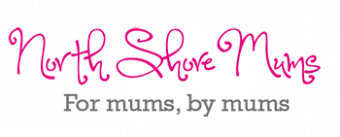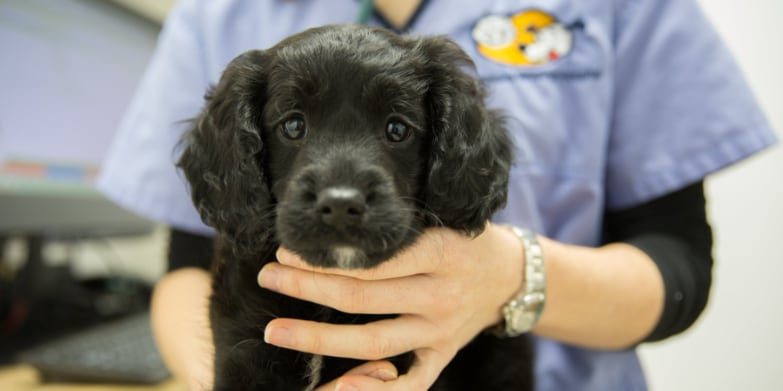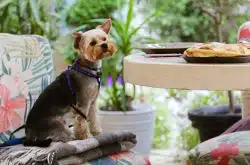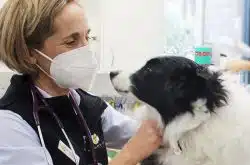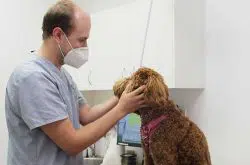Top 5 tips to give your puppy the best start in life, from Turramurra Veterinary Hospital’s Dr Gretta Howard and behaviourist Katie Bedrossian.
Top 5 tips to give your puppy the best start in life
1. Smooth settling in
Moving into a new home away from the litter mates and parents can be a stressful time for a puppy, so taking some time off to help your puppy adjust is worthwhile. Try to clear your calendar for 2 weeks to help your puppy bond to the family.
Young puppies are very sensitive to separation, unless it is gradual. Avoid any separation in the first week and during the second week, introduce some home alone time in a safe space such as a play pen with treat dispensing toys such as a Kong or Treat Ball, water, an indoor toileting spot and soft bedding (1 hour twice daily is ideal).
From 8-10 weeks of age, puppies go through a fear period so positive experiences are a must. Avoid any form of punishment as this can increase anxiety and lead to behavioural problems. It’s much better to reward the behaviour you want to reinforce and ignore the behaviours you don’t want.

Help your puppy settle and get off to a smooth start together
2. Sleeping soundly
Puppies tend to feel more secure in a confined space such as a crate with a cover over the top. The size of the crate should allow the puppy to be able to sit, lie down and turn around easily inside. Expose the puppy to the crate slowly by keeping the crate’s door open during the day and putting a chew toy inside (eg Kong or Tuff toys).
For the first week, your puppy will feel more secure sleeping in the same room as you. If not, try to keep a baby gate across the puppy’s room rather than a closed door, so that he or she can still smell you and know that you are nearby.
To help the puppy get enough rest, ensure the family leaves the puppy alone if he or she is resting in their puppy bed or crate. This can be their safe place.
3. Toilet training technique
Toilet training is a gradual process in puppies and it’s important to stick to a routine. In the early stages, it’s helpful to have an indoor toileting option for your puppy such as the grass dog toilets (eg Potty Plant or Fresh Patch).
Remember to never raise your voice or punish your puppy if they do their business in the wrong spot. Take your puppy to the toilet first thing in the morning when he or she wakes up, after every meal and after each sleep. Reward your puppy immediately to encourage toileting in the right place. Be patient – it can take up to 6 months of age to get toilet training under control.

Help your dog learn skills for life (especially toilet training them)
4. Successful socialisation
The socialisation period in puppies is between 3 – 12 weeks of age and includes socialising your puppy to other dogs, different people and experiences.
Aim to give your puppy as many positive experiences as possible (not neutral or negative ones) during this period, but be careful not to overwhelm your puppy with too much stimulation.
There are many ways you can help to socialise your puppy in the home environment:
- Handling: Practice gentle handling of your puppy from head to toe
- Noises: Many sounds are new for puppies (eg vacuum, washing machine, electric mixers, thunder, garbage trucks) and should be introduced in a positive manner
- Interactions: Take your puppy outdoors to meet different people but avoid close interaction with dogs that are not known to you at this stage
- Surfaces: Let your puppy walk on different surfaces including grass, concrete, wooden floor boards, up and down stairs and across bridges
Remember to have some healthy high value food rewards handy so that your puppy receives positive reinforcement for every new experience and back off if your puppy shows signs of fear.
Puppy classes are ideal so that you have the right resources to set up your puppy for success from the very beginning. Puppy playgroup is a great way to introduce your puppy to other dogs in a safe environment. These are both available at Turramurra Veterinary Hospital.

Well-socialised dogs can be the best companions for each other (for life!) and for the family
5. Happy and healthy
Puppies grow at a really fast pace, much faster than humans, so it is vital that they receive a premium diet formulated for puppies, so that their learning is supported with the right nutrients.
There is a risk of developing a behavioural problem due to lack of socialisation, but at the same time, your puppy needs to be kept safe.
Outside of your own backyard, it’s best to stick to concreted outdoor paths until 2 weeks after completing the full course of puppy vaccinations. Avoid high density dog areas such as off-leash dog parks, ovals and sports fields.
Remember that besides the usual parasites (worms and fleas), puppies need to be protected from the deadly paralysis tick, which is common in Sydney’s North Shore and Northern Beaches.
To learn more about tick paralysis, check out this article.

These three pups are happy and healthy fans of Turramurra Veterinary Hospital
Dr Gretta Howard is from Turramurra Veterinary Hospital. Find them at 2 Princes street Turramurra, phone 9988 0198 or connect via Facebook or Instagram.
